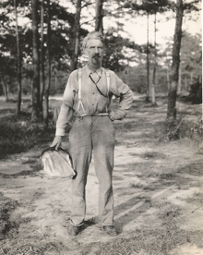Drs. John Abbott and Milt Ward were awarded an IMLS Inspire! grant for $47,575 to rehouse an historically and scientifically significant beetle collection.
The proposed project will result in the rehousing of an historically and scientifically significant collection at the Alabama Museum of Natural History (ALMNH), bringing it up to modern collection standards. Additionally, the collection of beetles will be imaged and data digitized making it accessible to an international community. The Löding Beetle Collection consists of ~ 50,000 specimens dating from the early 1900’s and includes substantial taxonomic coverage. Henry Löding was an avid amateur entomologist and collector of insects throughout Alabama. The collection he donated to the ALMNH contains specimens from at least 44 states, northern Mexico and Canada.
The goals for Löding collection are to 1) stabilize, protect, and organize Löding specimens by acquiring additional storage cabinets/drawers/pinning trays, and transfer pinned specimens still in Schmitt boxes to new Cornell drawers, 2) image all 50,000 specimens and the associated labels, 3) transcribe verbatim label data, and 4) place the imagery and label data in ARCTOS Collections Management software (https://arctos.database.museum/almnh_es). ARCTOS data are distributed to global platforms like GBIF (https://www.gbif.org) and IDigBio (https://www.idigbio.org) insuring that the data are available to the broadest international community possible.

Drs. John Abbott (Project Director) and Milt Ward will oversee the project. We anticipate the rehousing to be completed in the first half of the first year. The imaging and digitization will be funded internally by the Department of Museum Research and Collections. We will begin the image capture and digitization in January of 2023 and expect to be completed by the end of 2025. This project perfectly supports the goals of Collection Stewardship and Public Access outlined in the Inspire! Program. When completed, one of the most historically and scientifically significant beetle collections in the United States will be conserved and shared with an international community.